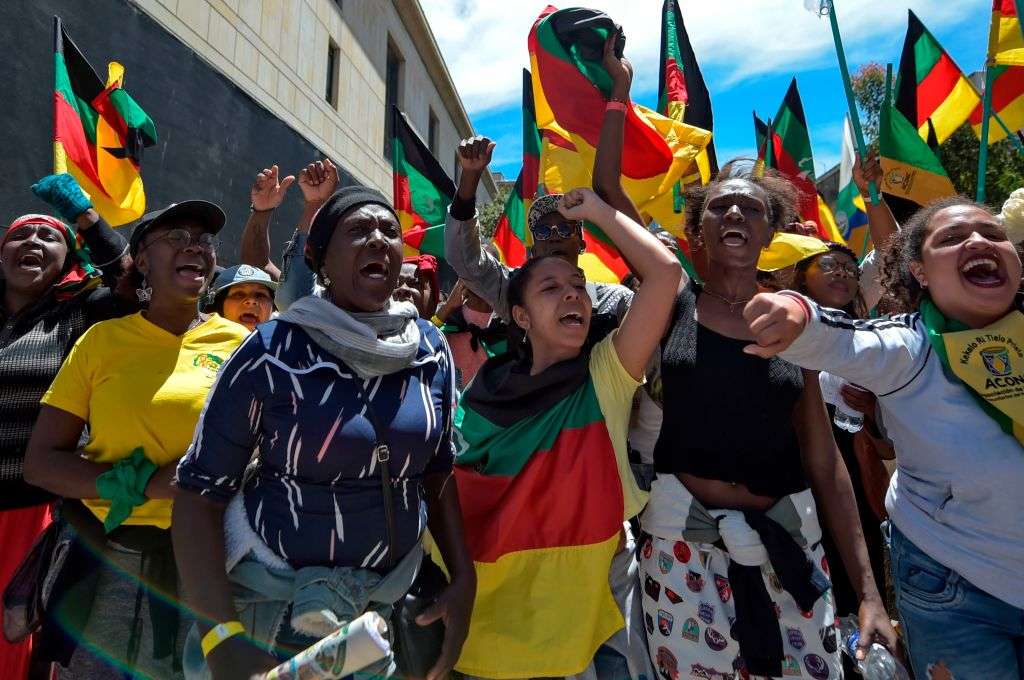According to a new report released on February 29, 2024, by Freedom House, freedom in Africa saw a troubling decline for the 10th consecutive year in 2023.
The report, titled “Freedom in the World 2024: The Mounting Damage of Flawed Elections and Armed Conflict,” highlighted a global trend of diminishing freedom, with political rights and civil liberties deteriorating in 52 countries.
This decline overshadowed improvements observed in 21 other nations.
Key findings revealed that elections in Madagascar, Nigeria, and Zimbabwe were plagued by political violence, administrative irregularities, and widespread distrust.
Meanwhile, conflicts in Sudan and the Democratic Republic of the Congo resulted in severe human rights violations.
Furthermore, military coups in Niger and Gabon continued a worrying trend of civilian government oustings across the continent.
Freedom in the World includes scores and detailed country reports on political rights and civil liberties for 195 countries and 15 territories around the globe. Scores are based on a 100-point scale, with 0 representing the lowest level of freedom.
The latest report delved into the events of 2023 while also offering valuable insights into long-term trends shaping global freedom.
Africa witnessed a notable decline in overall freedom, with 14 countries experiencing score declines while only 5 showed improvements.
Niger, in particular, faced the sharpest drop in scores, plummeting by -18 points following the ousting of its elected government by military forces.
On the brighter side, Liberia saw a notable improvement with a score increase of +4 points.
Amidst these fluctuations, certain countries emerged as beacons of relative freedom, including Cabo Verde (92), Mauritius (85), São Tomé and Príncipe (84), Ghana (80), South Africa (79), and Seychelles (79) all boasting high ratings within the region.
However, the lowest-rated countries in the region tell a different story, with South Sudan, Eritrea, Equatorial Guinea, and the Central African Republic securing the bottom positions with scores of 1, 3, 5, and 5, respectively, reflecting substantial challenges to freedom and governance.

These disparities highlighted a stark reality: while only a mere 7 percent of the African population resides in Free countries, a staggering 50 percent find themselves in regions classified as Not Free, underscoring the varied experiences and struggles across the continent.
The report identified some steps that democratic governments can take to protect and expand political rights and civil liberties around the globe.
Some Of The Report’s Recommendations
One recommendation was that democratic governments and donors must increase and sustain support for those working to defend and promote fundamental freedoms worldwide.
Failure to do so would embolden autocrats and can result in the loss of hard-won progress.
“Amid a panoply of competing needs, the democratic community and donors should be prepared to surge assistance to countries at critical junctures. These are places where recent democratic gains require reinforcement, or where freedom is threatened by authoritarian aggression, conflict, or illiberal leaders.”
Freedom in the World 2024
Moreover, the rights of people in disputed territories must be upheld because “the events of the past year in places such as Nagorno-Karabakh and the Gaza Strip provided stark evidence that populations without self-determination are at greater risk of extreme human rights abuses or atrocities.”
Furthermore, at least 40 countries—representing more than two-fifths of the world’s population—are holding national-level elections in 2024, with many more conducting other types of balloting.
The report highlighted that free and fair elections are the bedrock of any democracy, and independent and transparent electoral processes are necessary to foster genuine competition and public trust.
According to the report, “Efforts to rig elections, including through the abuse of state resources or media to unfairly benefit the incumbent, or by changing election rules on short notice to put the opposition at a disadvantage, should be met with diplomatic pressure or sanctions. Democracies should not recognize the legitimacy of leaders who come to power through systematic electoral manipulation.”
READ ALSO: Guinea’s Junta Names Mamadou Oury Bah As New Prime Minister




















